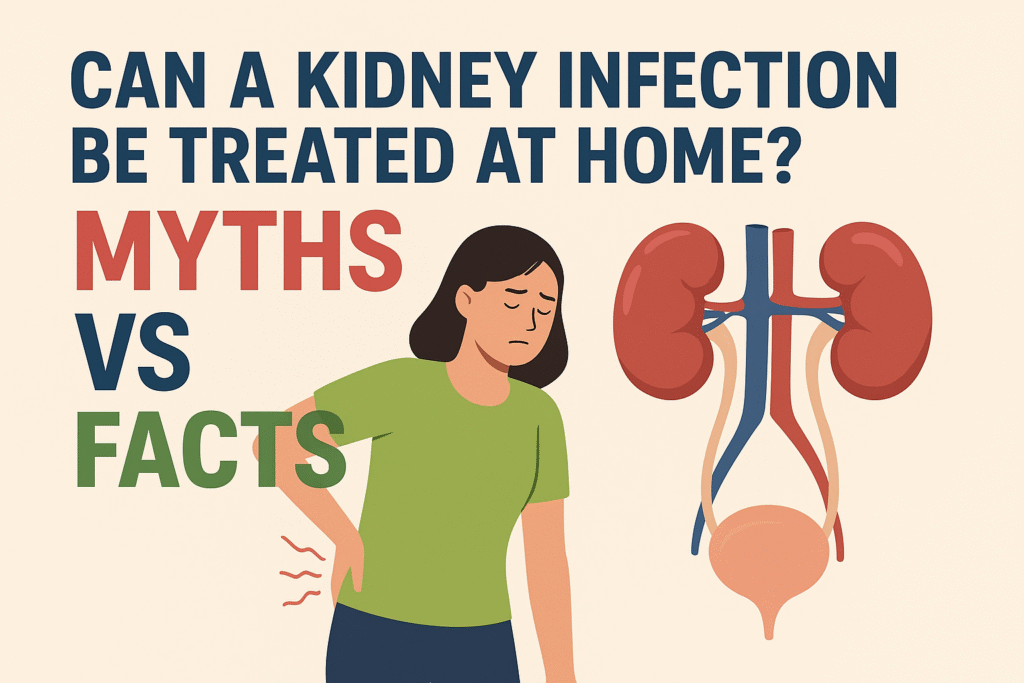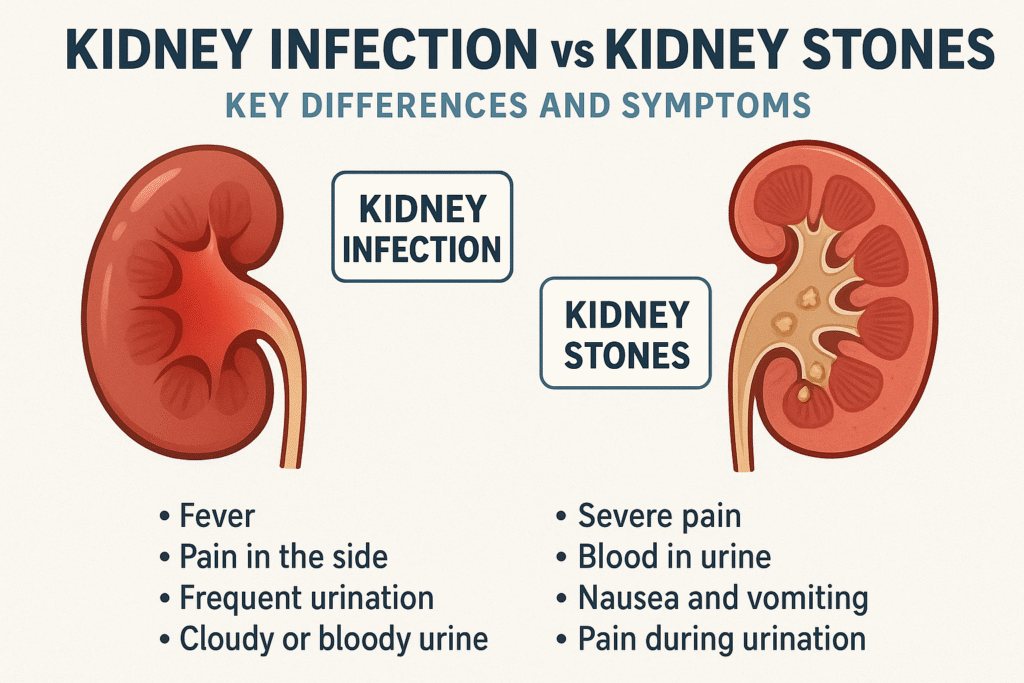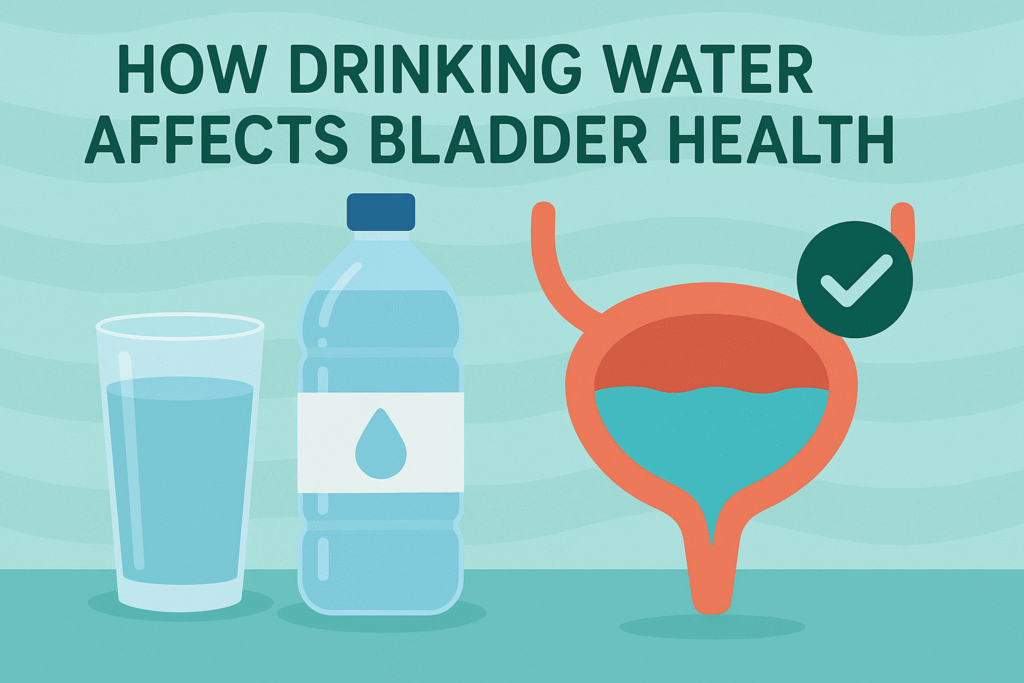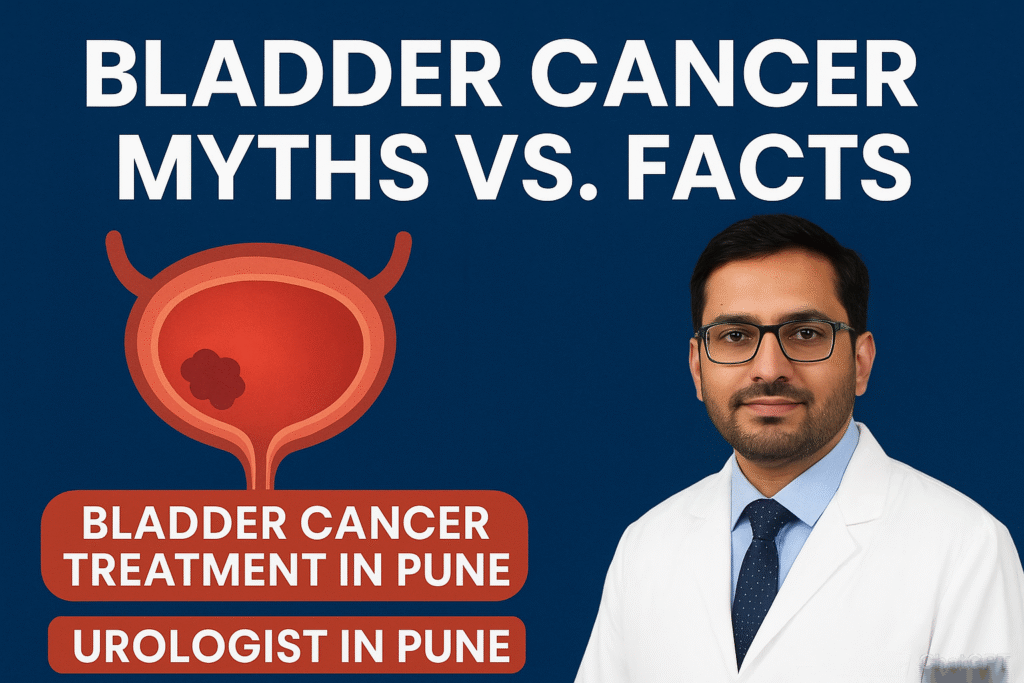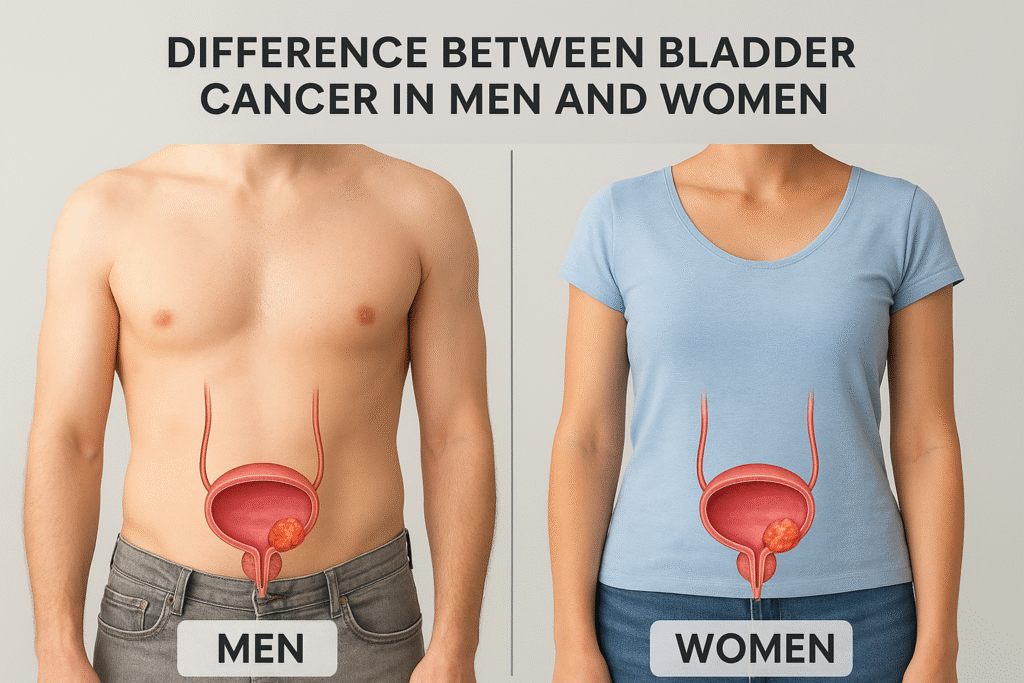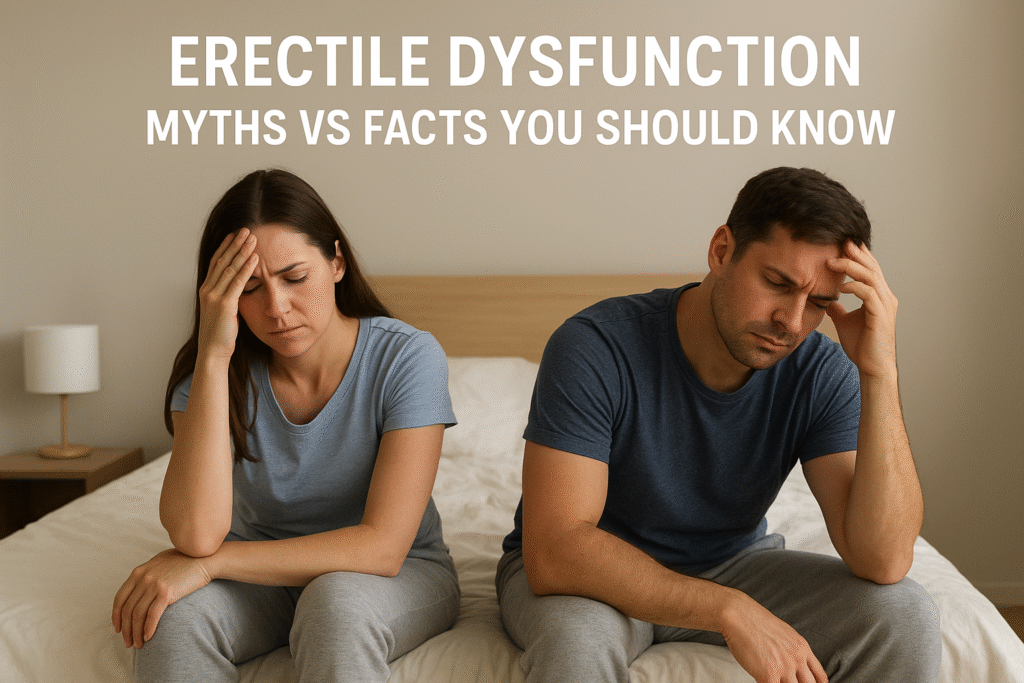Can a Kidney Infection Be Treated at Home? Myths vs Facts
Kidney infections, also known as pyelonephritis, are serious infections that affect one or both kidneys. They usually occur when bacteria from the urinary tract travel up to the kidneys. While mild urinary tract infections (UTIs) may improve with home care or oral antibiotics, kidney infections are not something to take lightly. Yet, many people mistakenly believe that these infections can be treated at home using home remedies or over-the-counter medicines. In this blog, Dr. Rakshit Ahuja, a leading Urologist in Pune, clears the air about what’s true and what’s not when it comes to treating kidney infections. Myth 1: Drinking Lots of Water Can Cure Kidney Infections Fact: Staying hydrated helps flush bacteria from your urinary tract and supports kidney function — but it cannot cure an active infection. Water can only help prevent UTIs or assist recovery after medical treatment. Once bacteria reach your kidneys, they multiply rapidly and can cause fever, chills, and flank pain. Without proper antibiotics prescribed by a Kidney Specialist in Pune, the infection may worsen or spread to the bloodstream, leading to a condition called sepsis, which can be life-threatening. So, while water is beneficial, it is not a cure for a kidney infection. Always consult your doctor if symptoms persist beyond a day or two. Myth 2: Home Remedies Like Cranberry Juice Are Enough Fact: Cranberry juice may help prevent urinary infections by stopping bacteria from sticking to the urinary tract walls, but it cannot treat a kidney infection. Once bacteria have reached the kidneys, antibiotic treatment is essential. Delaying proper care in favor of home remedies can lead to complications such as abscess formation, kidney damage, or chronic infections. If you experience symptoms like fever, back pain, nausea, or burning urination, seek immediate medical attention from an experienced Urologist in Pune. Myth 3: If Symptoms Improve, You Can Stop Antibiotics Fact: Stopping antibiotics early is one of the biggest mistakes people make. Even if symptoms subside after a few doses, the bacteria may still be active. Incomplete treatment can cause recurrence and make the bacteria resistant to antibiotics. Always complete the full course of medication as prescribed by your Kidney Specialist in Pune to ensure complete eradication of the infection. Myth 4: Painkillers Can Treat Kidney Infections Fact: Painkillers can temporarily relieve discomfort but do not treat the root cause of infection. Pain management may help with symptom relief, but antibiotics are the only effective treatment for bacterial kidney infections. Using painkillers excessively can even harm your kidneys, especially if your kidney function is already affected. That’s why proper diagnosis and treatment under medical supervision are essential. Myth 5: Kidney Infections Always Cause Severe Symptoms Fact: Not all kidney infections show intense symptoms in the early stages. Some people might only feel mild back pain, fatigue, or frequent urination without fever. However, if left untreated, the infection can suddenly worsen. That’s why even mild urinary symptoms should never be ignored. Early diagnosis and treatment from a qualified Urologist in Pune can prevent the infection from spreading or causing kidney damage. When to See a Doctor If you notice any of the following signs, do not attempt home treatment — consult your doctor immediately: Persistent fever or chills Pain in the back, side, or groin Nausea or vomiting Cloudy or foul-smelling urine Burning sensation while urinating Blood in urine These symptoms could indicate a kidney infection that needs urgent medical attention. Treatment for Kidney Infections A Kidney Specialist will usually recommend: Antibiotic therapy (oral or intravenous, depending on severity) Adequate hydration to flush bacteria Pain management with safe medication Follow-up urine tests to confirm complete recovery In severe cases, hospitalization may be necessary for intravenous antibiotics or drainage of abscesses. Prevention Tips While you can’t always prevent kidney infections, these tips help reduce your risk: Drink plenty of water daily Urinate frequently and don’t hold urine for long Wipe from front to back to prevent bacterial spread Empty your bladder after sexual intercourse Manage conditions like diabetes that increase infection risk Final Thoughts Kidney infections are serious medical conditions that should never be treated casually at home. While home remedies and hydration can support overall kidney health, they are not substitutes for professional care. If you suspect a kidney infection, seek help immediately from an expert like Dr. Rakshit Ahuja, a trusted Urologist in Pune. Early diagnosis and proper treatment ensure a full recovery and protect your kidneys from lasting damage. Remember: Timely medical care saves kidneys — and lives. Don’t rely on myths; rely on medical expertise. Dr. Rakshit Ahuja — Kidney Specialist in Pune Expert in Kidney Stone, UTI, and Prostate Treatments Book your consultation today to ensure your kidneys stay healthy and infection-free. Select an element to maximize. Press ESC to cancel. Select an element to maximize. Press ESC to cancel.
Can a Kidney Infection Be Treated at Home? Myths vs Facts Read More »

 Select an element to maximize. Press ESC to cancel.
Select an element to maximize. Press ESC to cancel.